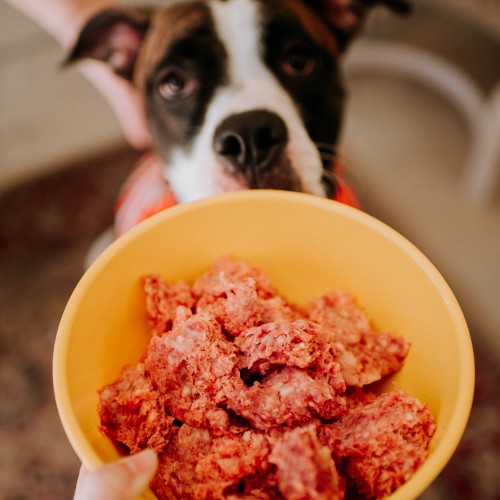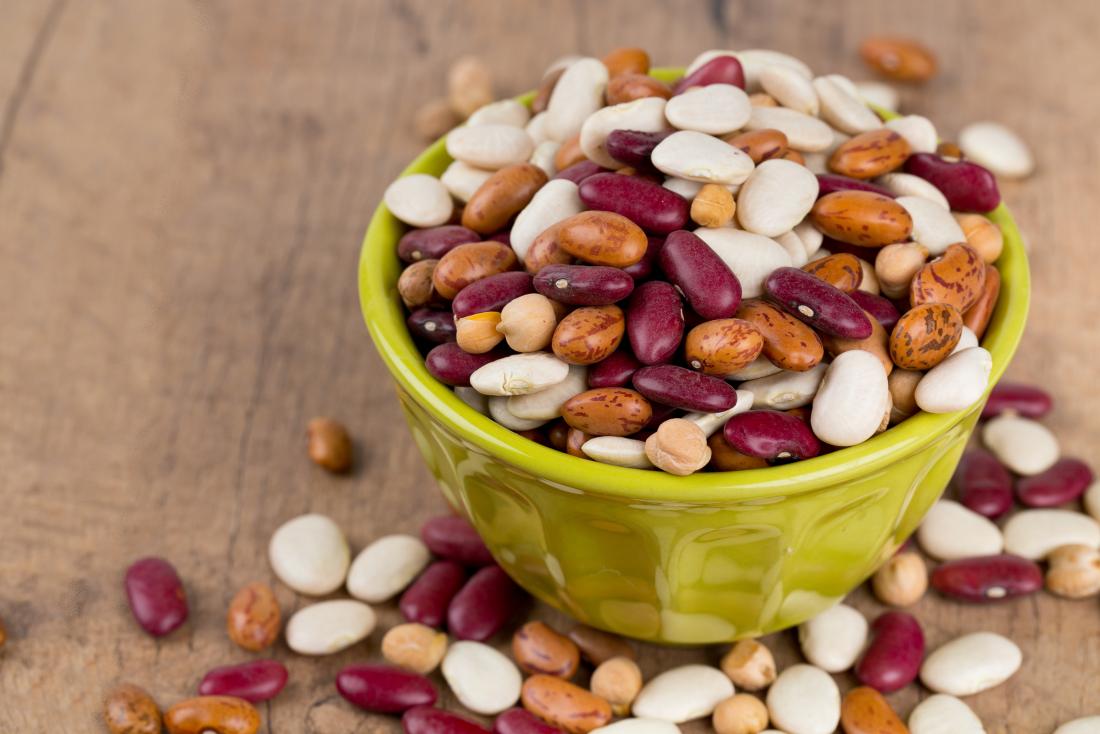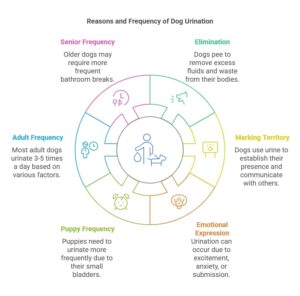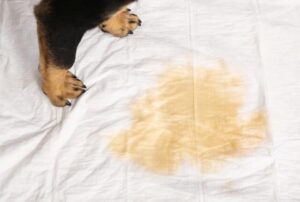Yes, raw dog food can cause gas in some dogs. This may occur due to changes in diet or specific ingredients.
Feeding your dog a raw diet has gained popularity among pet owners seeking natural nutrition. While many dogs thrive on raw food, some may experience digestive issues, including gas. This gas can result from the introduction of new proteins or ingredients that the dog’s digestive system is not used to.
Factors like food quality, portion sizes, and individual sensitivities also play a role. Understanding why your dog may be gassy on a raw diet is crucial for their health and comfort. Monitoring their reactions and consulting with a veterinarian can help you make informed decisions about their diet.
Table of Contents
ToggleIntroduction To Raw Dog Food Diets
Raw dog food diets focus on feeding dogs uncooked ingredients. This approach mimics a dog's natural diet. Many pet owners believe it improves health and vitality. However, it can lead to concerns, like gas and digestive issues.
Popular Raw Diet Options
- Raw Meat: Includes beef, chicken, and lamb.
- Raw Bones: Provides calcium and dental benefits.
- Organ Meats: Liver, kidneys, and heart are nutrient-rich.
- Vegetables: Carrots, spinach, and peas support digestion.
- Fruits: Apples, blueberries, and bananas offer vitamins.
Perceived Benefits Of Raw Feeding
- Improved Coat Condition: Many owners report shinier fur.
- Better Digestion: Some dogs digest raw food more easily.
- Increased Energy: Raw diets may boost overall energy levels.
- Weight Management: Raw food can help maintain a healthy weight.
- Healthier Teeth: Chewing raw bones promotes dental health.
Common Misconceptions About Raw Food And Gas
Many dog owners worry about gas from raw dog food. Misunderstandings often arise from myths and misinformation. Let’s clear the air regarding these misconceptions.
Myth Versus Fact
Myth: Raw dog food always causes gas.
Fact: Gas can come from many sources. Each dog's digestive system is unique. Some dogs adjust well to raw diets, while others may experience gas.
Myth: All raw foods are the same.
Fact: Quality of ingredients matters. Fresh, high-quality proteins may reduce gas compared to low-quality options.
Myth: Gas indicates a bad diet.
Fact: Gas can be normal for some dogs. It’s important to monitor changes in their digestion.
Sources Of These Myths
- Lack of knowledge: Many owners don't understand raw diets.
- Online forums: Misinformation spreads easily in forums.
- Personal experiences: One bad experience can lead to generalizations.
- Veterinary advice: Some vets may not support raw diets.
Understanding these myths helps dog owners make informed choices. Knowledge is key to a happy, healthy pet.
The Science Behind Digestion And Gas In Dogs
Understanding how dogs digest food helps us know why gas occurs. Different diets can affect your dog's digestion. Raw dog food, in particular, raises questions about its impact on gas production. Let's explore how canine digestion works and the factors that contribute to flatulence.
How Digestion Works In Canines
Dog digestion starts in the mouth. Their teeth chew food, mixing it with saliva. Next, the food travels down the esophagus to the stomach. Here, acids break down the food further. The small intestine absorbs nutrients. Finally, the waste moves to the large intestine.
Key parts of canine digestion include:
- Mouth: Chewing and saliva begin the breakdown.
- Stomach: Acidic environment aids food digestion.
- Small Intestine: Nutrient absorption occurs here.
- Large Intestine: Waste is formed and stored.
Factors Contributing To Flatulence
Flatulence in dogs can stem from various factors. Understanding these can help manage gas issues.
| Factor | Description |
|---|---|
| Diet | Certain foods cause more gas, especially high-fiber or fatty meals. |
| Swallowing Air | Dogs that eat too fast may swallow air, leading to gas. |
| Food Sensitivities | Some dogs react poorly to specific ingredients. |
| Gut Health | A healthy gut flora aids in proper digestion. |
Recognizing these factors helps you choose the right diet. Monitoring your dog's reaction to foods is crucial. If flatulence persists, consult your veterinarian for guidance.

Credit: wefeedraw.com
Comparing Raw And Commercial Diets
Choosing the right diet for your dog is crucial. Raw and commercial diets offer different benefits and drawbacks. Understanding these differences helps you make an informed decision.
Differences In Ingredients
Raw dog food and commercial diets have distinct ingredients.
- Raw Dog Food: Contains fresh meats, vegetables, and bones.
- Commercial Diets: Often include processed ingredients, fillers, and preservatives.
| Ingredient Type | Raw Dog Food | Commercial Diets |
|---|---|---|
| Protein Source | Fresh meats | Meat meals or by-products |
| Carbohydrates | Fresh vegetables | Grains and fillers |
| Additives | None | Preservatives and chemicals |
Impact On Canine Digestion
The way dogs digest food varies between raw and commercial diets.
- Raw Diet: Promotes natural digestion. Dogs often have fewer digestive issues.
- Commercial Diet: May lead to gas and bloating. Processed ingredients can upset their stomachs.
- Raw diets provide enzymes for better digestion.
- Commercial diets might lack these enzymes.
- Dogs on raw diets often have firmer stools.
- Commercial diets can cause loose stools.
Understanding these differences helps address concerns about gas in dogs. Choosing the right diet can lead to better health and comfort for your furry friend.
Ingredients In Raw Food That May Cause Gas
Raw dog food can lead to digestive issues. Some ingredients are known to cause gas. Understanding these ingredients helps you choose better options for your dog.
Common Culprits
Several ingredients in raw dog food may cause gas. Here are some common offenders:
- Beans: High in fiber, they can create gas.
- Cruciferous vegetables: Broccoli and cauliflower can ferment in the gut.
- Dairy: Many dogs are lactose intolerant, leading to gas.
- High-fat meats: Excess fat can upset digestion.
- Grains: Some dogs cannot digest grains well.
How To Identify Problematic Ingredients
Identifying gas-causing ingredients requires careful observation. Follow these steps:
- Monitor your dog's diet: Keep track of their meals.
- Note gas occurrences: Record when gas happens.
- Check ingredient lists: Look for common culprits.
- Try elimination: Remove one ingredient at a time.
- Consult your vet: Discuss any persistent issues.
Adjusting your dog's diet can help reduce gas. A balanced diet with fewer gas-causing ingredients is vital.
Transitioning To Raw Food And Its Effects
Switching your dog to raw food can lead to various effects. One common concern is gas. Understanding how to transition properly is key to minimizing digestive issues.
Proper Transition Methods
Transitioning your dog to raw food should be gradual. A sudden change can upset their stomach. Follow these steps for a smooth transition:
- Start Slow: Begin with a mix of old and new food.
- Monitor Reactions: Watch for signs of gas or discomfort.
- Increase Raw Food: Gradually increase the raw portion over a week.
- Keep It Consistent: Feed at the same time daily to establish a routine.
- Stay Hydrated: Ensure your dog drinks enough water.
These methods help your dog's digestive system adjust.
Short-term Versus Long-term Effects
Short-term effects often include increased gas and bloating. This can happen during the initial transition. Monitor your dog closely during this phase.
| Time Frame | Possible Effects |
|---|---|
| Short-term (1-2 weeks) | Gas, bloating, and diarrhea may occur. |
| Long-term (3+ weeks) | Improved digestion, less gas, and healthier coat. |
Long-term effects show improvement in digestion. Many dogs experience less gas and better overall health. Regularly assess your dog's reactions to the new diet.
- Watch for signs of discomfort.
- Consult a vet if gas persists.
- Adjust portions or ingredients as needed.
Expert Opinions On Raw Diets And Canine Gas
Understanding the effects of a raw diet on your dog is crucial. Many pet owners report increased gas in dogs on raw food. Experts provide valuable insights on this topic. Let's explore what veterinarians and nutritionists say about raw feeding and canine gas.
Veterinarian Insights
Veterinarians have varied opinions on raw diets. Here are some key points:
- Digestion: Raw diets can change how dogs digest food.
- Gas production: Some dogs may experience more gas with raw diets.
- Quality matters: High-quality ingredients can reduce gas.
- Transition period: Switching to raw may cause temporary gas issues.
Dr. Jane Smith, a veterinarian, states, “Each dog's digestive system is unique. Some dogs adapt well to raw diets, while others struggle with gas.” Monitoring your dog's response is essential.
Nutritionist Advice On Raw Feeding
Pet nutritionists highlight specific aspects of raw diets. Their insights focus on nutrition balance and ingredient selection:
| Aspect | Advice |
|---|---|
| Ingredient Quality | Use fresh, high-quality proteins to minimize gas. |
| Fiber Content | Include vegetables for better digestion and less gas. |
| Gradual Transition | Switch diets slowly to help your dog adjust. |
| Hydration | Ensure your dog drinks plenty of water. |
Nutritionist Mike Johnson emphasizes, “Every dog is different. Monitor your dog's reactions to raw food. Adjust the diet as necessary.” Following expert advice can help manage gas issues effectively.

Credit: ironwillrawdogfood.com
Managing Gas With A Balanced Raw Diet
Raw dog food can sometimes cause gas. This issue often stems from unbalanced meals. A well-planned diet can reduce these gas problems. Let's explore how to create a balanced meal plan and which supplements can help.
Creating A Balanced Meal Plan
A balanced meal plan is crucial for your dog’s digestion. Focus on the right proportions of protein, fat, and carbohydrates. Here are some key points for a balanced raw diet:
- Proteins: Include muscle meat, organ meats, and bones.
- Fats: Use healthy fats like fish oil and chicken fat.
- Carbohydrates: Add small amounts of vegetables and fruits.
Measure ingredients based on your dog's weight and activity level. A general guideline is:
| Dog Weight (lbs) | Daily Food Intake (oz) |
|---|---|
| 10 | 4-6 |
| 25 | 8-12 |
| 50 | 16-24 |
| 75 | 24-32 |
Introduce new foods gradually to avoid digestive upset. Mix small amounts of new ingredients into the existing diet. Monitor your dog for any signs of gas.
Supplements That Can Help
Consider using supplements to support digestion. Some helpful options include:
- Probiotics: These promote healthy gut bacteria.
- Digestive Enzymes: They help break down food.
- Pumpkin: This aids digestion and soothes the stomach.
Consult your veterinarian before adding any supplements. They can recommend the right products based on your dog's needs.
Real Owner Experiences With Raw Diets And Gas
Many pet owners share their experiences with raw dog food. Some find it beneficial, while others face challenges. Gas issues are a common concern. Let’s explore real stories from pet owners about raw diets and gas.
Success Stories
Several owners report positive changes after switching to raw diets. Dogs often show improved energy and better coats. Here are some success stories:
- Owner 1: “My dog’s coat became shinier. No more gas!”
- Owner 2: “She has more energy and loves her meals.”
- Owner 3: “His digestion improved. Fewer gas issues!”
Challenges Faced By Pet Owners
Not all experiences are positive. Some owners face gas issues with their dogs. Here are common challenges:
| Owner | Challenge | Solution |
|---|---|---|
| Owner A | Frequent gas after meals | Switched protein sources |
| Owner B | Foul-smelling gas | Added digestive enzymes |
| Owner C | Gas and bloating | Gradually introduced raw food |
These challenges highlight the importance of monitoring your dog's response to food changes. Adjusting the diet can help reduce gas. Always consult a vet for advice tailored to your pet.

Credit: www.medicalnewstoday.com
Conclusion: Making An Informed Decision On Raw Feeding
Deciding to switch to a raw dog food diet can be challenging. Understanding both the benefits and drawbacks is essential. This section helps dog owners make educated choices.
Weighing Pros And Cons
Raw dog food diets come with various advantages and disadvantages. Here’s a quick overview:
| Pros | Cons |
|---|---|
| Improved coat health | Possible digestive issues |
| Higher energy levels | Risk of bacterial contamination |
| Better dental health | Cost may be higher |
| Weight management | Requires careful meal planning |
Consider how each factor affects your dog. Each pet reacts differently to raw food. Monitor their health closely during the transition.
Final Takeaways For Dog Owners
- Consult with your veterinarian before making changes.
- Introduce raw food gradually to avoid digestive upset.
- Choose high-quality ingredients for better nutrition.
- Watch for signs of gas or other health issues.
- Adjust the diet based on your dog's individual needs.
Raw feeding can be beneficial for some dogs. Careful consideration is vital for a successful transition.
Frequently Asked Questions
Does Raw Dog Food Lead To Gas Problems?
Yes, raw dog food can lead to gas issues. This often happens due to the high protein and fat content. Dogs may also struggle to digest certain raw ingredients. Gradually introducing raw food can help minimize gas. Monitor your dog's reaction and consult a vet if concerns arise.
Why Does My Dog Have Gas On A Raw Diet?
Gas in dogs on a raw diet may result from digestive adjustments. Their gut flora needs time to adapt to raw food. Additionally, certain ingredients may not suit every dog. Observing your dog's response to different proteins can help identify the cause.
Always consult a vet for persistent issues.
Can Switching To Raw Food Cause Bloating?
Switching to raw food can sometimes cause bloating in dogs. This is often due to sudden dietary changes. Gradual transitions are essential to prevent digestive upset. Monitor your dog closely during the switch. If bloating persists, consult a veterinarian for tailored advice.
How Can I Reduce My Dog's Gas From Raw Food?
To reduce gas from raw food, introduce new foods slowly. Gradually increase the quantity over a week or two. Ensure you’re using high-quality ingredients suited for your dog. Regular exercise can also help digestion. If issues continue, seek veterinary guidance for dietary adjustments.
Conclusion
Raw dog food can indeed cause gas in some dogs. Factors like diet changes, ingredient quality, and individual sensitivities play significant roles. Monitoring your dog's reaction to raw food is crucial. If gas persists, consult your vet for tailored advice.
A balanced approach ensures your furry friend stays happy and healthy.













